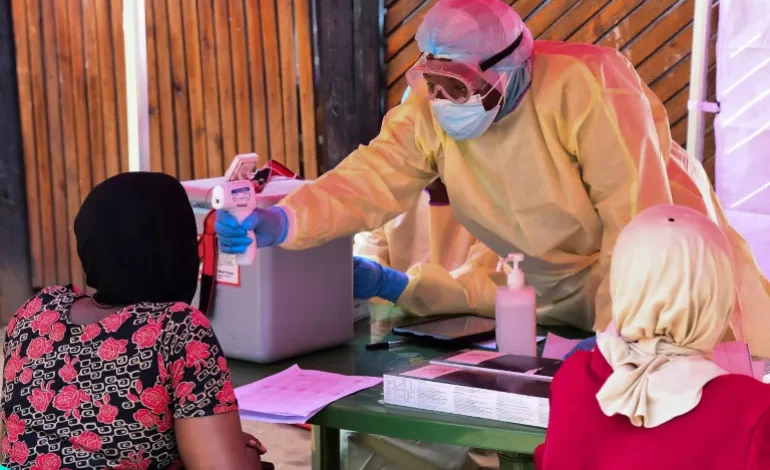Uganda Grapples with New Ebola Outbreak Amid Vaccine Hesitancy and Communication Challenges
Public mistrust, poor communication, and vaccine resistance complicate efforts to contain the deadly Sudan Ebola virus as the country battles its latest health crisis

- Uganda launched a vaccine trial just days after the outbreak
- Conspiracy theories and traditional beliefs continue to impede treatment and containment efforts
- Poor communication about the outbreak has drawn criticism from the tourism industry
Uganda faces a fresh Ebola outbreak just two years after the 2022 health crisis that claimed 55 lives.
The current outbreak, announced on January 30, 2025, has stirred concerns over vaccine hesitancy and poor communication from authorities.
The first documented case was a 32-year-old male nurse who succumbed to the highly infectious Sudan virus strain. This strain, with a fatality rate exceeding 40%, has no approved vaccine, leaving the country to rely on experimental trials amidst public skepticism.
In 2022, conspiracy theories and misinformation fueled resistance to treatment, with some believing patients were injected with lethal substances. Survivors like Edward Kayiwa recall the fear and mistrust that plagued their communities. Despite witnessing deaths, he eventually sought treatment and recovered, but many others did not.
The current outbreak highlights a lack of clear communication, with health officials providing limited updates. This has drawn criticism from Uganda’s tourism sector, which fears damage to the country’s reputation. Businesses worry about the impact on travel and trade as international advisories urge caution.
Vaccine hesitancy also persists. Although a randomized trial began swiftly after the outbreak, few have opted to take the experimental vaccine. Experts stress the need for education to combat misinformation and encourage participation.
Public health professionals call for improved transparency and consistent updates to bridge the information gap, while survivors warn against conspiracy theories that undermine efforts to contain the disease. Uganda’s experience underscores the ongoing struggle to balance public health measures with societal challenges during infectious disease outbreaks.




![Sudanese army soldiers celebrate after retaking an oil refinery in Khartoum North on January 25, 2025 [El Tayeb Siddig/Reuters]](https://lawsonmultimedia.com/wp-content/uploads/2025/02/2025-01-25T192418Z_99551309_RC2ZGCA1K1VF_RTRMADP_3_SUDAN-POLITICS-1739189303-390x220.webp)
